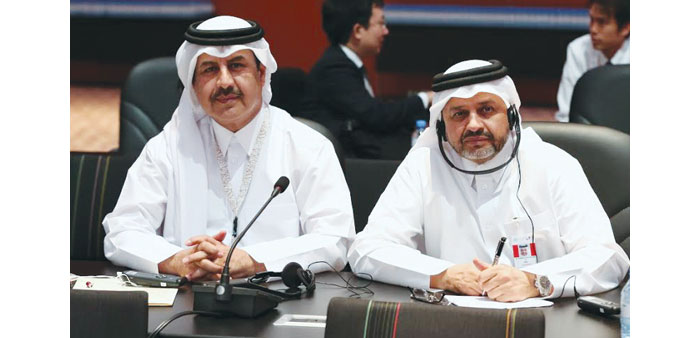As criminals were racing to technologically outpace law enforcement, the international community must form legal barriers, including new global treaties, to end impunity, prosecute perpetrators and stop cyber crime and illicit financing on their tracks, it was told at a plenary debate on “New and emerging forms of transnational crime” at the 13th UN Congress for Crime Prevention and Criminal Justice yesterday.
Botnets, online spies and terrorists recruiting foreign mercenaries are among a new league of threats that require equally unique and innovative responses, it was pointed out. While some of the speakers suggested opening channels for information sharing and mutual assistance, others debated whether or not a new cyber crime convention should be considered.
“We have to be smarter than the criminals to completely destroy their networks,” Morocco’s representative said, while describing an evolving cyberspace landscape where criminals were delving into a range of illicit activities from illegal mining to trafficking in endangered flora and fauna.
The rag-tag thugs and old-fashioned gangsters of the past have considerably modernised their modus operandi and are using state-of-the-art technology to run their illicit activities, propelled by trafficking more sophisticated methods and products, including human organs and fraudulent medicines.
Other speakers agreed that new efforts were necessary to stamp out the havoc wreaked by computer viruses and the widespread use of the Internet for criminal offenses, such as child pornography, identity theft and recruitment by terrorist groups.
While agreeing that a more concerted approach was required to fight cyber crime and transnational crime, a number of speakers were divided on whether existing or new tools would best guide that task.
New crimes required new conventions, said representative of Egypt while adding that a new instrument should also guide the states in addressing trafficking in cultural property. In addition, a new cyber-crime convention should effectively respond to such offenses and provide clear guidance on extradition and repatriation.
While agreeing with the deliberations, the South African delegate said there was an urgent need for a legally binding cyber-crime instrument. Supporting his argument Iraq’s speaker said such a tool would help contain crimes whereby “dirty” money could be transferred across the world within seconds.
The representative of the Russian Federation said the instrument provided for respecting human rights. “However, it did not recognise the sovereign rights of all states to lead investigations.”
India’s speaker doubted if it could be possible to really wage a fight against the ongoing cyber crimes using decade-old instruments and techniques.
The US representative said drafting a new cyber-crime instrument was “counterproductive” and delegates of the European Union and the Council of Europe said the Budapest Convention was the “appropriate multilateral tool”.
Elaborating on the instrument, the representative of the Netherlands said the fourth Global Conference on Cyberspace was currently taking place in The Hague, with ministers, academics and companies such as Microsoft and Google promoting a vision of a free, open and secure Internet. That task could not be left to the governments alone, he said, adding that civil society and private sector must be involved.

Delegates from Qatar attending a plenary debate on the u201cNew and emerging forms of transnational crimeu201d, yesterday.
